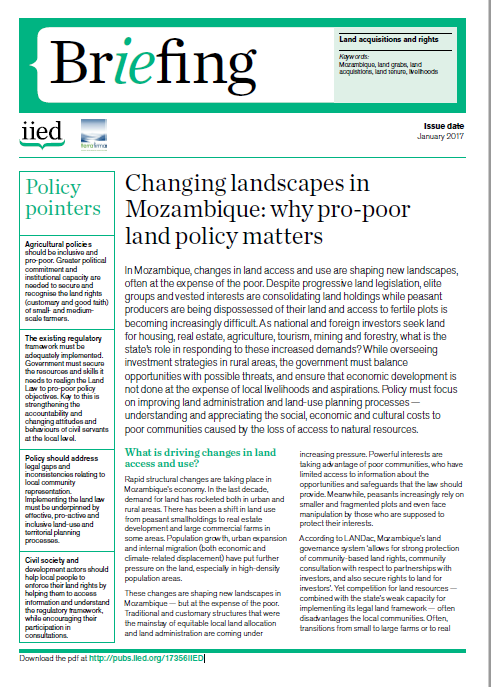Resource information
In Mozambique, changes in land access and use are shaping new landscapes, often at the expense of the poor. Despite progressive land legislation, elite groups and vested interests are consolidating land holdings while peasant producers are being dispossessed of their land and access to fertile plots is becoming increasingly difficult. As national and foreign investors seek land for housing, real estate, agriculture, tourism, mining and forestry, what is the state’s role in responding to these increased demands? While overseeing investment strategies in rural areas, the government must balance opportunities with possible threats, and ensure that economic development is not done at the expense of local livelihoods and aspirations. Policy must focus on improving land administration and land-use planning processes — understanding and appreciating the social, economic and cultural costs to poor communities caused by the loss of access to natural resources.


